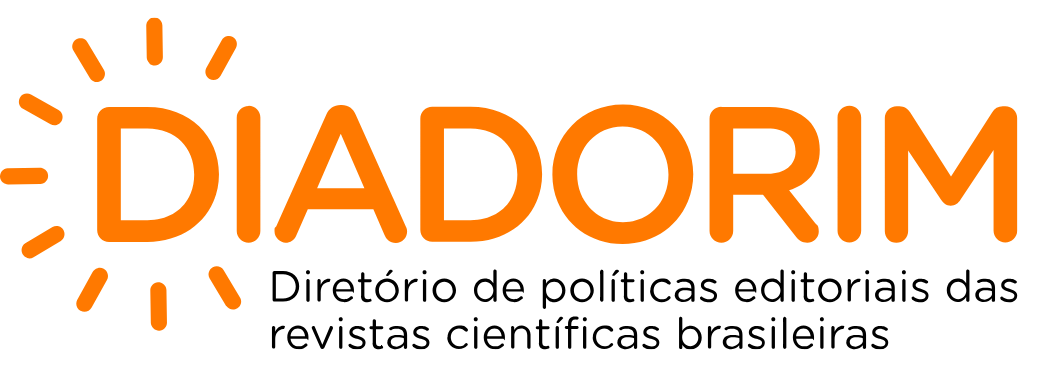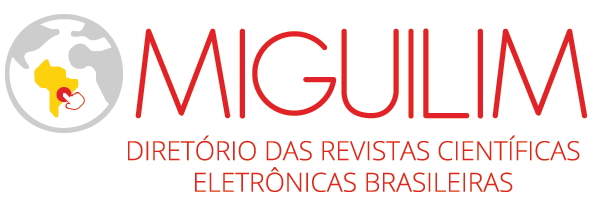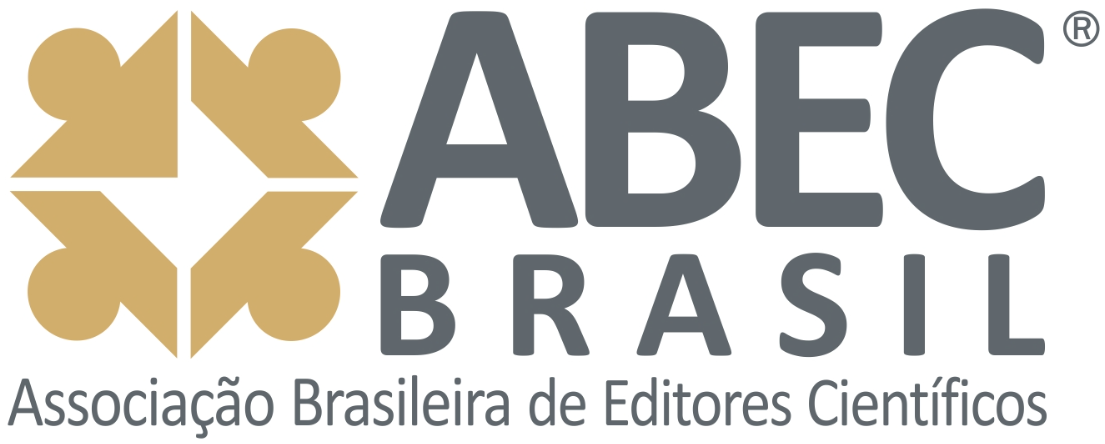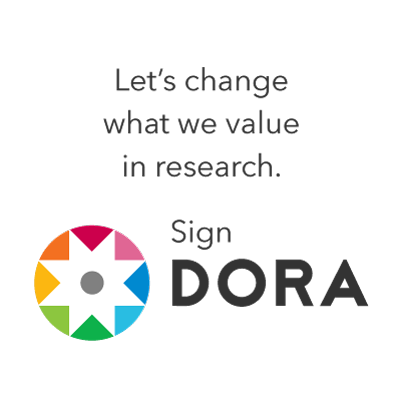About the Journal
Biosciences and Health (BioscHealth) is a multidisciplinary, open-access, electronic scientific journal that constitutes the modality of continuous publication in the areas of knowledge in biology, science and health, involving the Brazilian and foreign academic community, as well as teaching and postgraduate institutions in Brazil and worldwide.
Focus and scope of the journal (mission, objectives, target audience, submission policies and types of documents accepted for publication in the journal)
BioscHealth mission is to disseminate scientific publications through open access, thus contributing to the development of research and science in the country and abroad. The aim of the journal is to promote the advancement of scientific research, both by researchers working in Brazil and abroad, as well as to disseminate new scientific methods and significant results to the scientific community. The journal is open to the submission of articles from students (under the responsibility of at least one advisor or qualified professional), teachers and researchers from Brazil and abroad. The journal publishes several sorts of scientific papers, ranging from original articles, reviews, and case report in different fields of knowledge in Portuguese and English. It is multidisciplinary in character, publishing scientific articles from the most wide-ranging fields of knowledge in Biology, Biomedicine, Health Sciences, Engineering, Physical Education, Nursing, Physiotherapy, Medicine, Clinical and Surgical Medicine, Veterinary Medicine, Human and Animal Morphology, Nutrition, Dentistry, Psychology, Collective and Public Health.
Indexers:
BioscHealth is indexed in Crossref, Google Scholar, the Directory of Brazilian Scientific Journals (MIGUILIM), the Directory of Editorial Policies of Brazilian Scientific Journals (DIADORIM), the Brazilian Association of Scientific Editors (ABEC-Brazil) and Latindex (Regional Online Information System for Scientific Journals from Latin America, the Caribbean, Spain and Portugal).
Public Declaration of Adherence to DORA
The Journal of Biosciences and Health is pleased to be a signatory of the San Francisco Declaration on Research Assessment (DORA). DORA is a global initiative that aims to reform the evaluation of scientific research by reducing over-reliance on simplistic metrics and promoting qualitative and inclusive criteria. DORA advocates recognizing the intrinsic value of research in all its formats, encouraging transparency and fairness.
Link to DORA: https://sfdora.org
Portuguese version: Read the full Declaration here.
Biosciences and Health is an open access scientific publication committed to promoting interdisciplinary research in the biological sciences and health. We prioritize transparent and equitable evaluation practices, valuing social impact, academic diversity and methodological rigor, to the detriment of traditional metrics such as the Impact Factor of journals.
We signed DORA in May 2025 because its principles reinforce our commitment to:
. Equity in scientific publishing: We have eliminated the requirement for journal-based metrics (e.g. Impact Factor) in editorial processes.
. Valuing social relevance: We prioritize articles that address public health challenges and rigorous methodologies, regardless of the publication vehicle.
. Transparency: We disclose evaluation criteria in our guidelines for authors, such as: 1st Methodological rigor: Reproducibility and transparency in the description of methods; 2nd Social and scientific relevance: Potential impact of the research on public health, local communities or theoretical advances in the field; 3rd Diversity of voices and formats: We value articles that include perspectives from under-represented groups and accept varied formats (e.g. research articles, reviews and case reports); 4th Transparency and ethics: We require declarations of conflicts of interest and the availability of open data (where applicable).
To consolidate adherence to DORA, we will implement the following by January 2026:
✅ Revision of editorial criteria: Inclusion of explicit guidelines based on DORA for evaluating manuscripts.
✅ Engagement with the community: Publication of an editorial explaining our adherence to DORA and its implications.
If you have any questions about DORA or our research assessments, please contact Dr. Rogério Rodrigo Ramos, Editor-in-Chief (bh@bioscienceshealth.com.br).
Evaluation Policies and Guidelines
Manuscript Assessment
After the article is submitted by the author of the research, the Editorial Board will receive the article and, consequently, will read it to verify whether the text is in accordance with the submission guidelines of the journal. The BioscHealth adopted the "CrossRef Similarity Check" plagiarism detection software which analyzes the entire article in search of excerpts or the entire plagiarized text, if similarity is found, the article will be returned to be rewritten; if the correction is not complied with, the article will be rejected.
When submitting the article in English, the Brazilian author is required to attach, along with the article submission, a certificate from a specialized company, with a description of the translation services into English, proofreading for spelling and grammatical errors. Once the author submits the article in Portuguese, the English version of the title, abstract and keywords may not be just a conventional translation, instead it must be a specialized translation, with precise technical terms and words, otherwise your article may be rejected. BioscHealth publishing offers translation and proofreading services in English. If the author would like to hire this service, please ask for an estimate at bh@bioscienceshealth.com.br. This type of service will not imply in the acceptance of the article. Therefore, it is the author's responsibility to carry out the English version, using professional technical-scientific spelling and words in the text.
Provided the article is in full compliance with the Author Guidelines, the Editor-in-Chief may accept the article if the topic is relevant to the journal, forwarding the article for review. Accordingly, the article will be reviewed by invited reviewers and/or editorial board members. Upon completion of the review, the authors will be notified for necessary adjustments, and a letter will be sent in response to the reviewer's comments.
Text and Visual Elements Editing Policy
After acceptance of the article and before its final publication, the text and visual elements (figures and tables) may be edited by the Editorial Team in order to improve clarity, linguistic quality, and compliance with the journal's style. The corresponding author will receive the edited version for review and approval prior to publication. Changes that modify the academic content or interpretation of the results will be discussed and agreed upon with the authors in advance.
Open Access Policy
This is an open access journal: all articles will be immediately and permanently available for free reading, downloading, and sharing. The Journal does not charge submission fees for manuscripts and does not apply article processing charges (known as APCs).
Content is governed by the Creative Commons Attribution License (CC BY 4.0). This license permits third parties to:
- Distribute, copy, and adapt the material in any format;
- Create abstracts, translations, updated versions, or derivative works;
- Incorporate the article into collective works (such as anthologies);
- Use the text or data for commercial or non-commercial purposes.
Mandatory Conditions:
- Attribution: The original author(s) must be credited by linking to the article, providing a license link, and indicating any changes made.
- No Endorsement: Adaptations must not imply endorsement by the author(s) of the derivative work.
- Integrity: Modifications must preserve academic integrity, avoiding distortions that harm the author(s)’ honor or reputation.
The adoption of CC BY underscores our commitment to democratizing scientific knowledge, aligning with globally recognized best practices in academic publishing.
Guidelines for authors and submission rules
Privacy policy
The names and addresses provided in this journal will be used exclusively for the services provided by this publication and will not be made available for other purposes or to third parties.
Similarity Identification and Plagiarism Prevention and Use of Artificial Intelligence
Plagiarism, whether intentional or unintentional, constitutes a serious ethical violation. Plagiarism is defined as the partial or complete reproduction of content/text from another work without proper attribution through citation. If evidence of plagiarism is identified at any stage of the editorial process (pre-acceptance, post-acceptance, or post-publication), the authors will have the right to a written defense. Should the provided explanations be deemed unsatisfactory, the manuscript will be rejected (if unpublished) or retracted (if already published); the authors will face sanctions, including a prohibition on submitting new articles to the journal for a period determined by the Editor-in-Chief; the case may be reported to the authors’ affiliated institutions. BioscHealth employs the software Plagius detector for text similarity detection and plagiarism prevention. Additionally, AI-generated articles, manuscripts produced wholly or partially by AI tools will not be accepted for publication. If AI tools are used for text editing or proofreading in Portuguese or English, this use must be explicitly disclosed in the cover letter.
Authorship Contributions Statement
Authors are required to submit a Statement of Authorship Contributions, as an example of participation in the writing of the paper, drafting and composing the textual chapters, formatting, final proofreading, and author approval.








